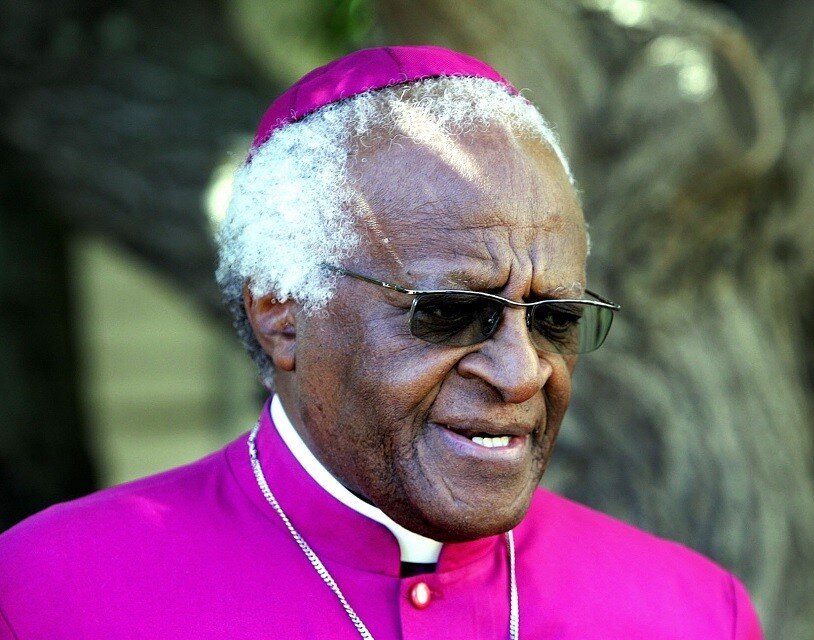
Desmond Tutu
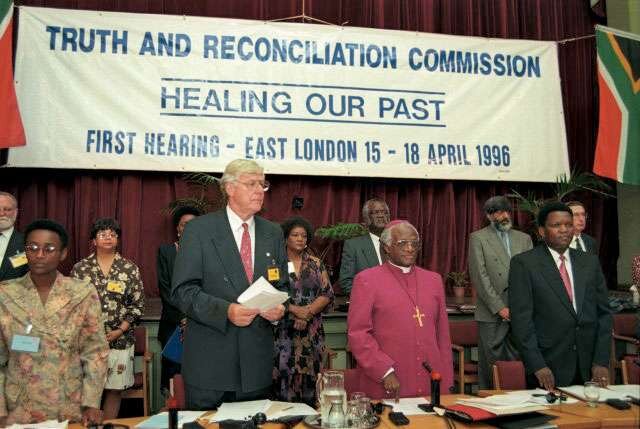
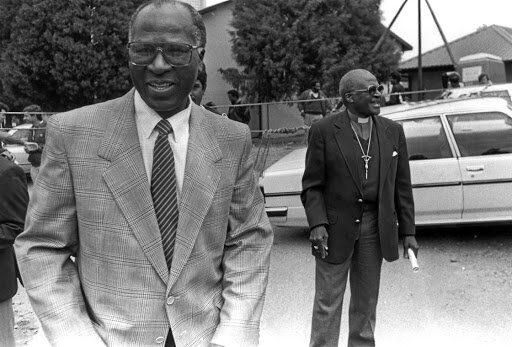
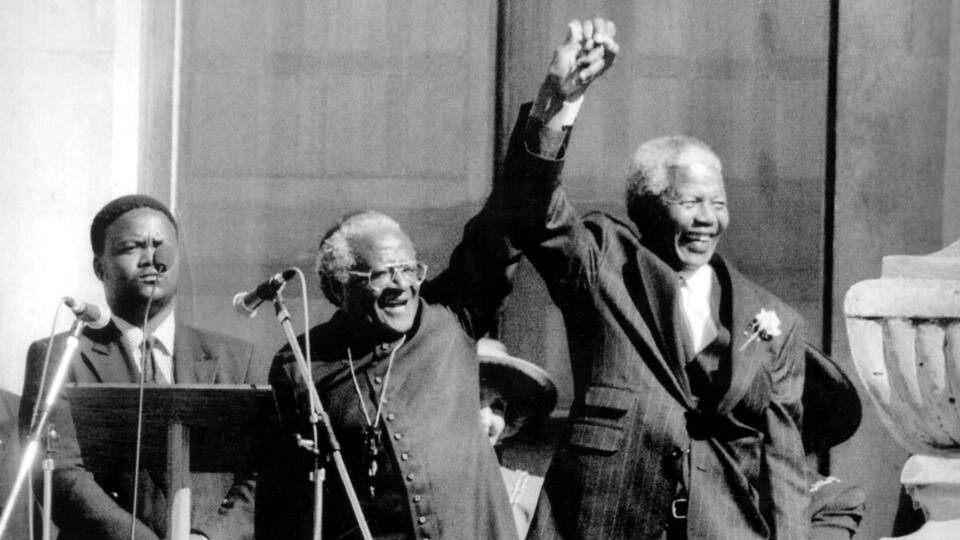
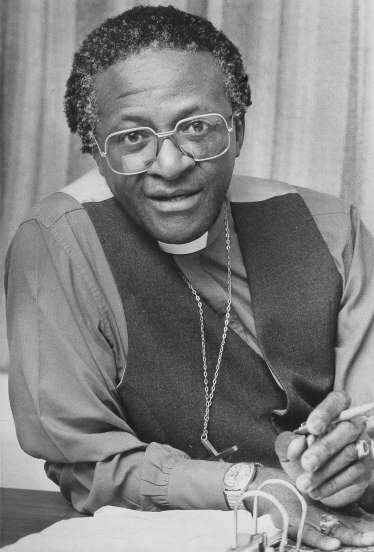
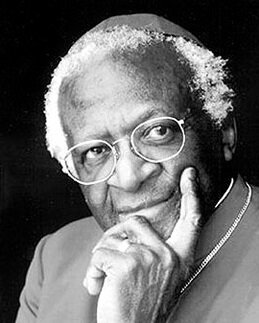
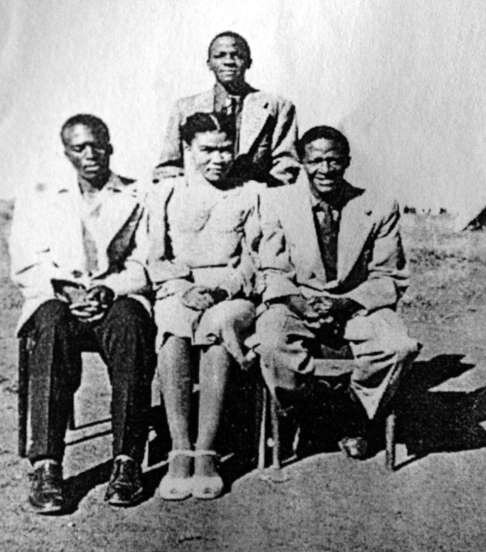
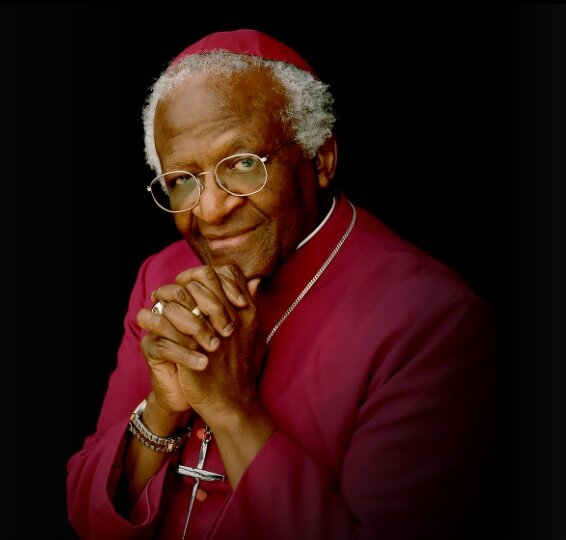
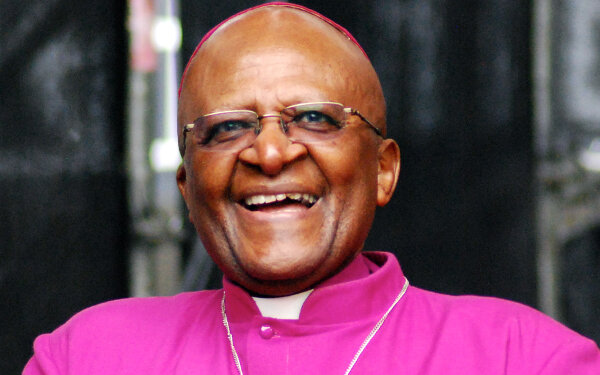
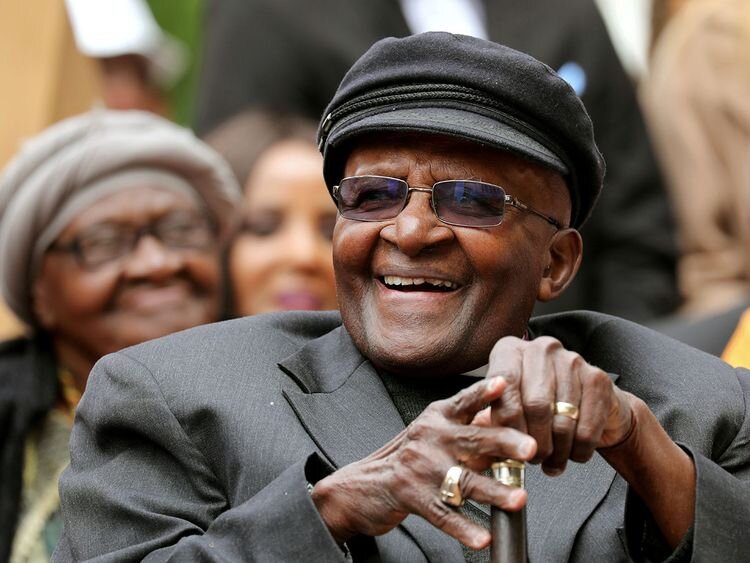
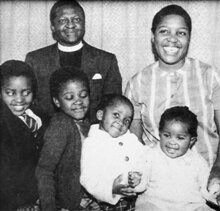
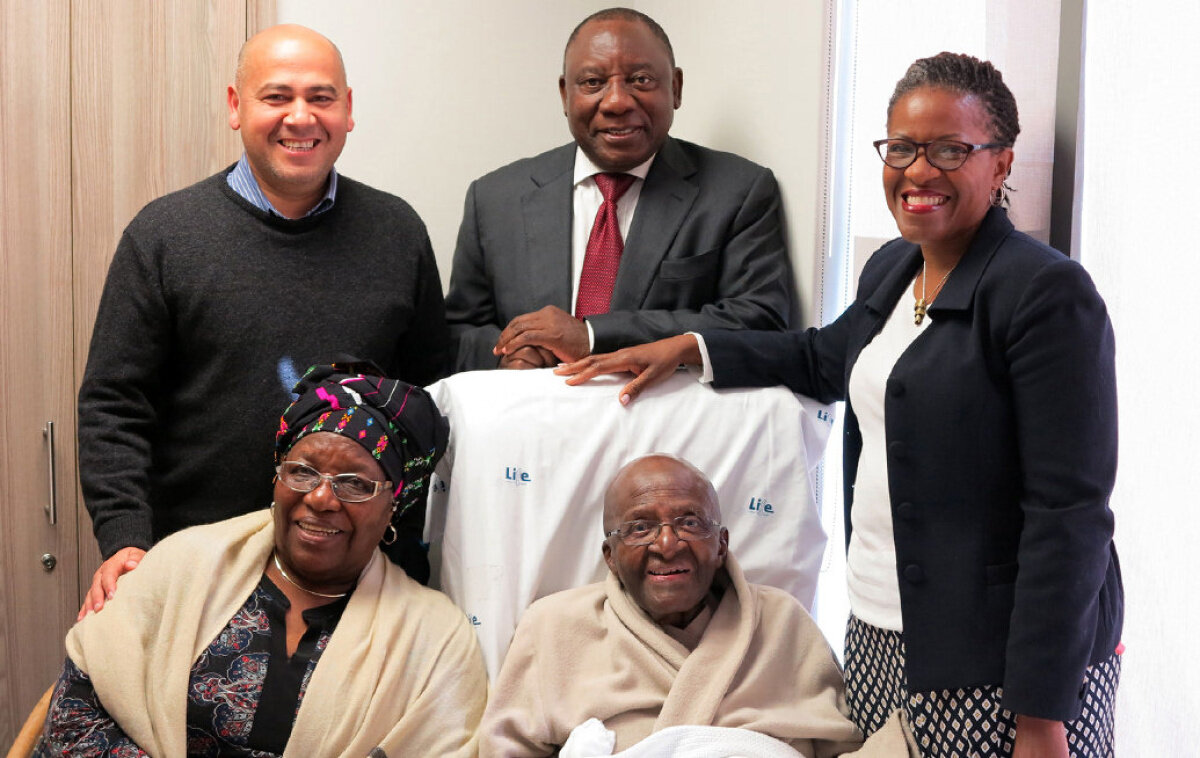
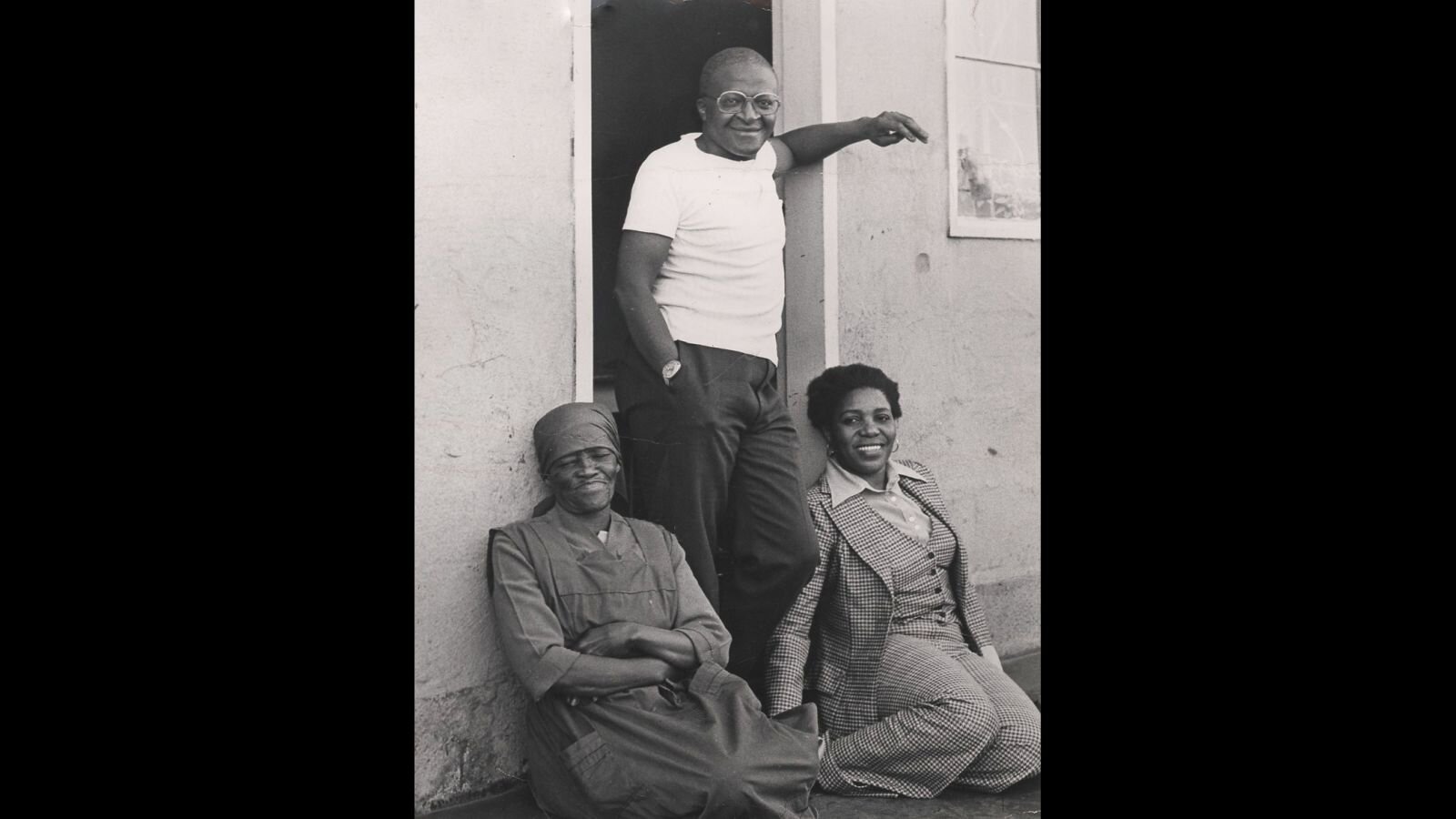
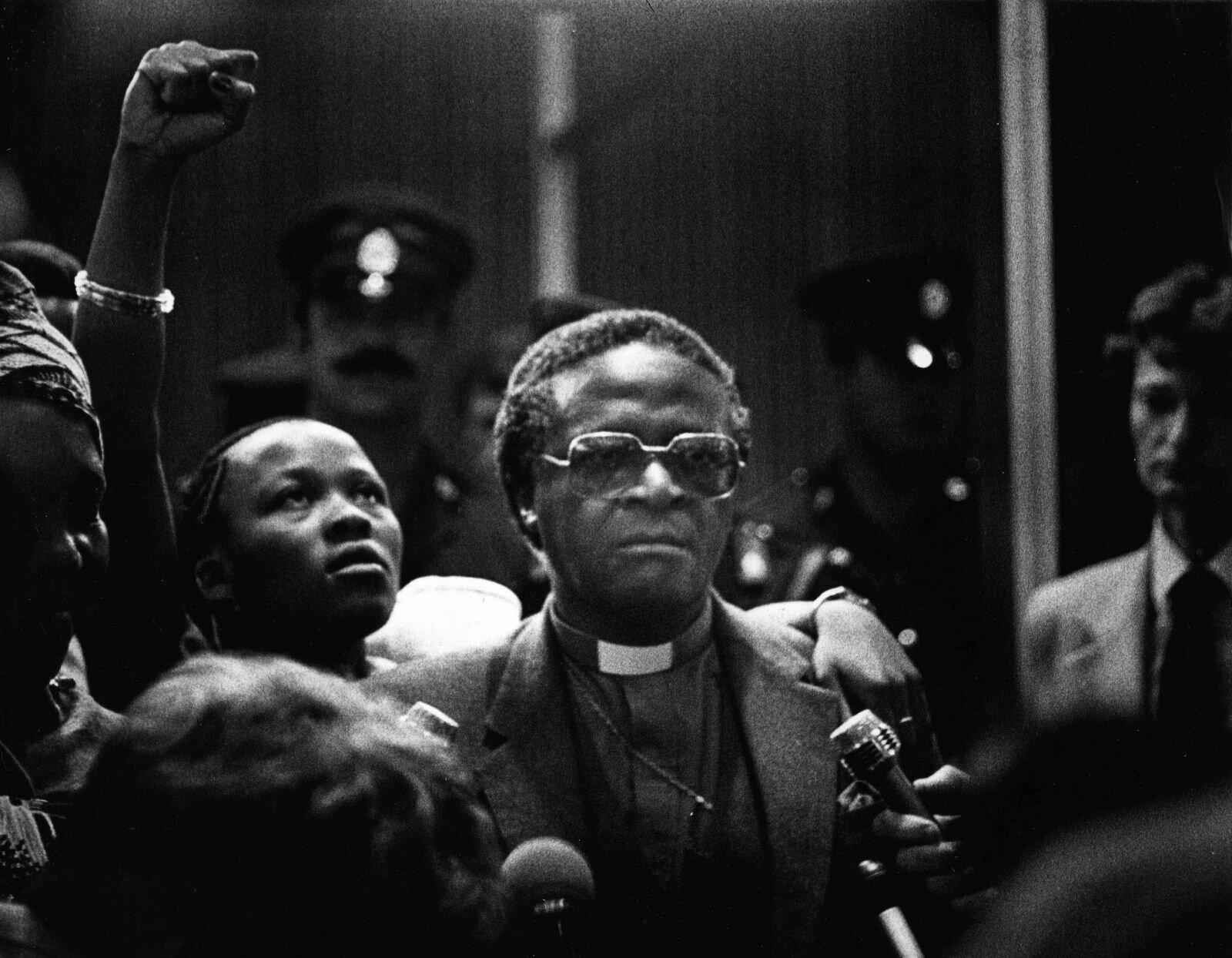
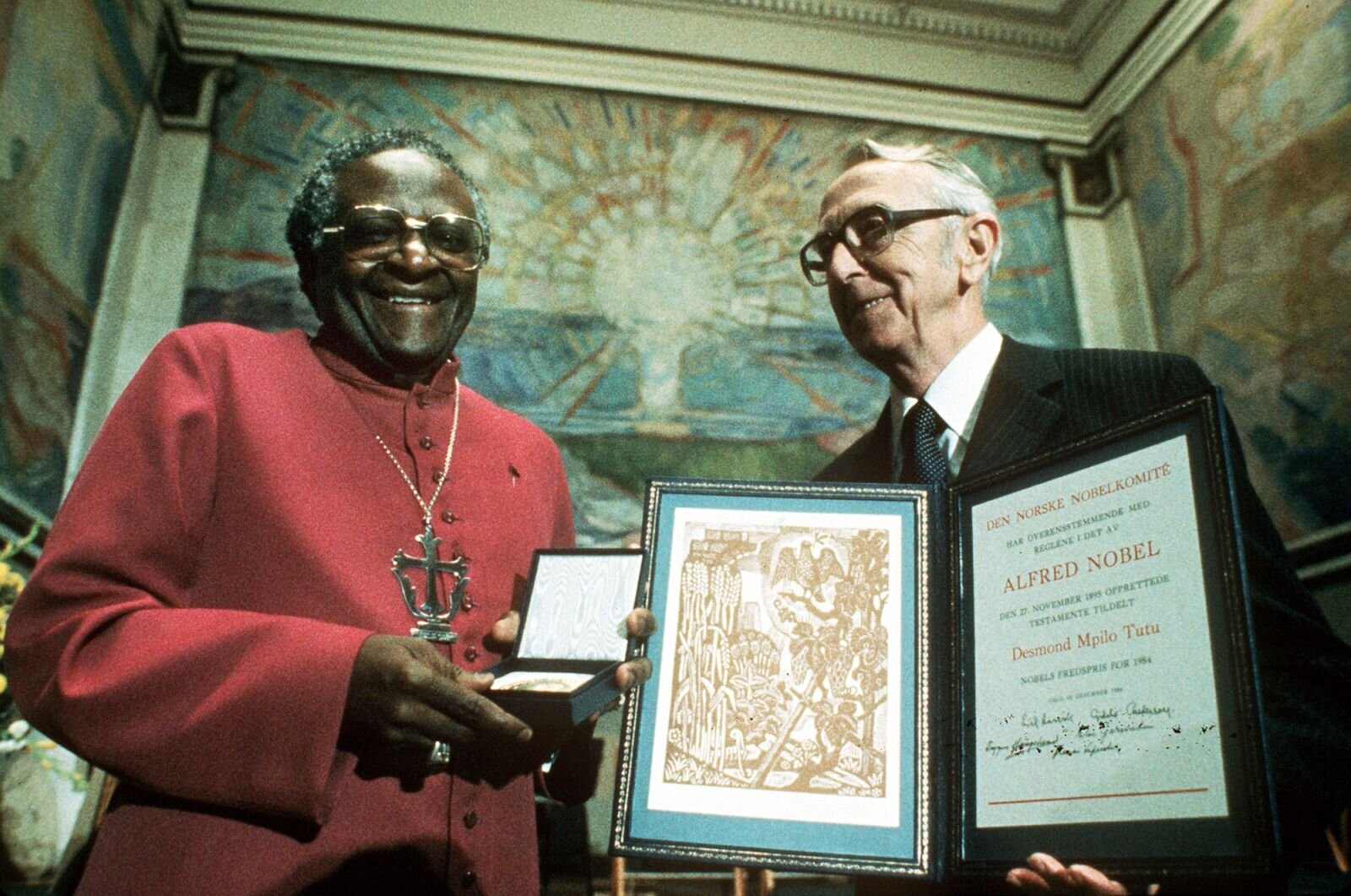
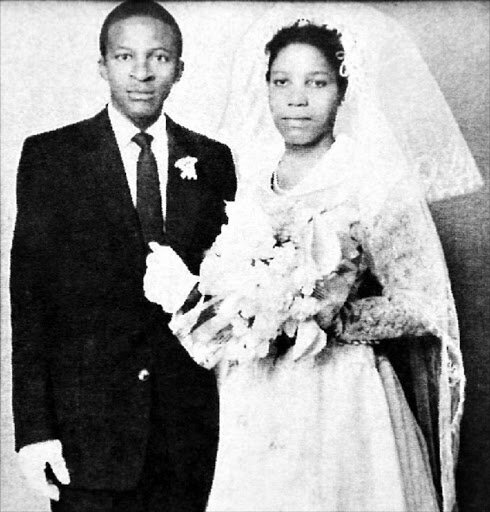
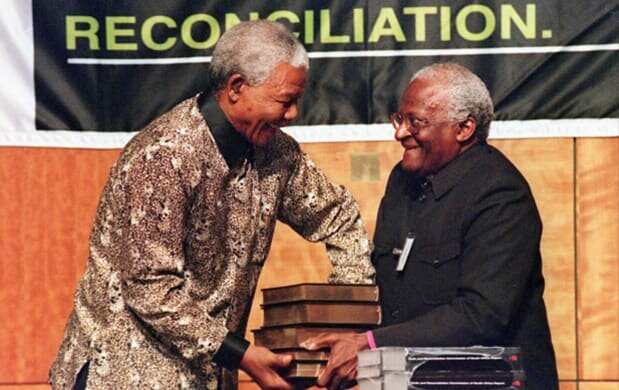
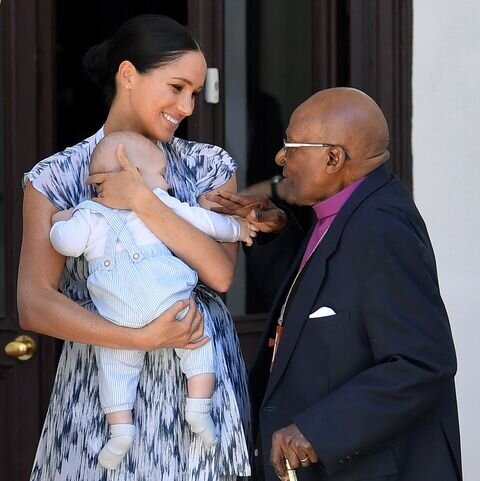
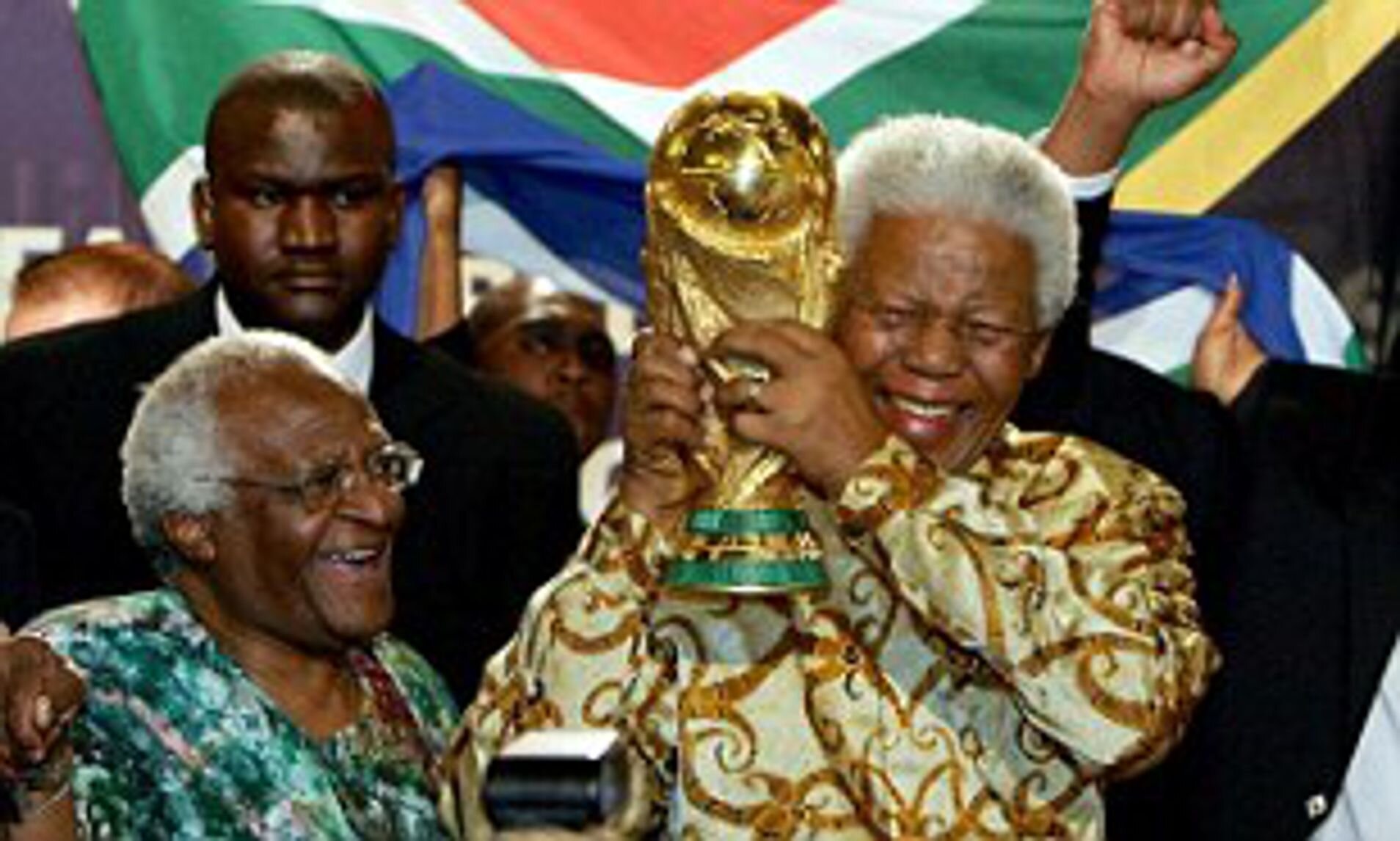
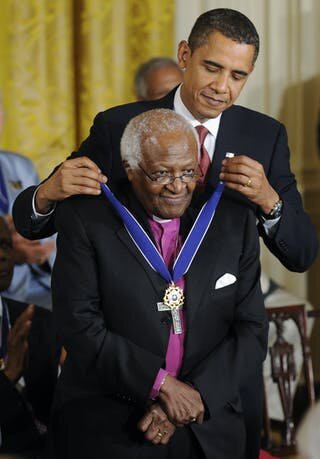
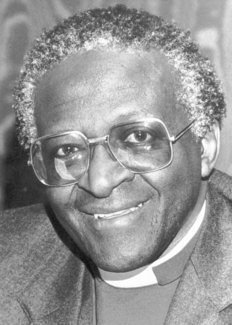
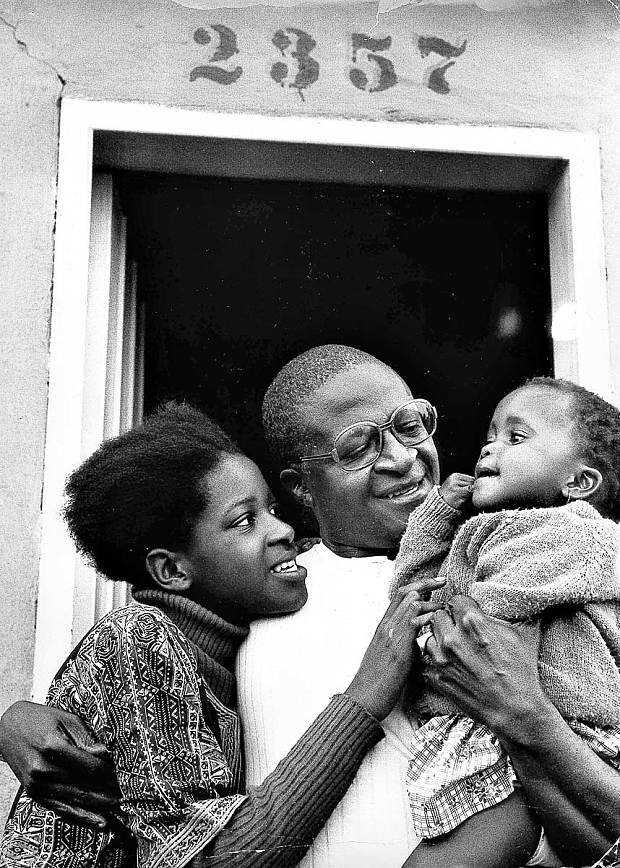
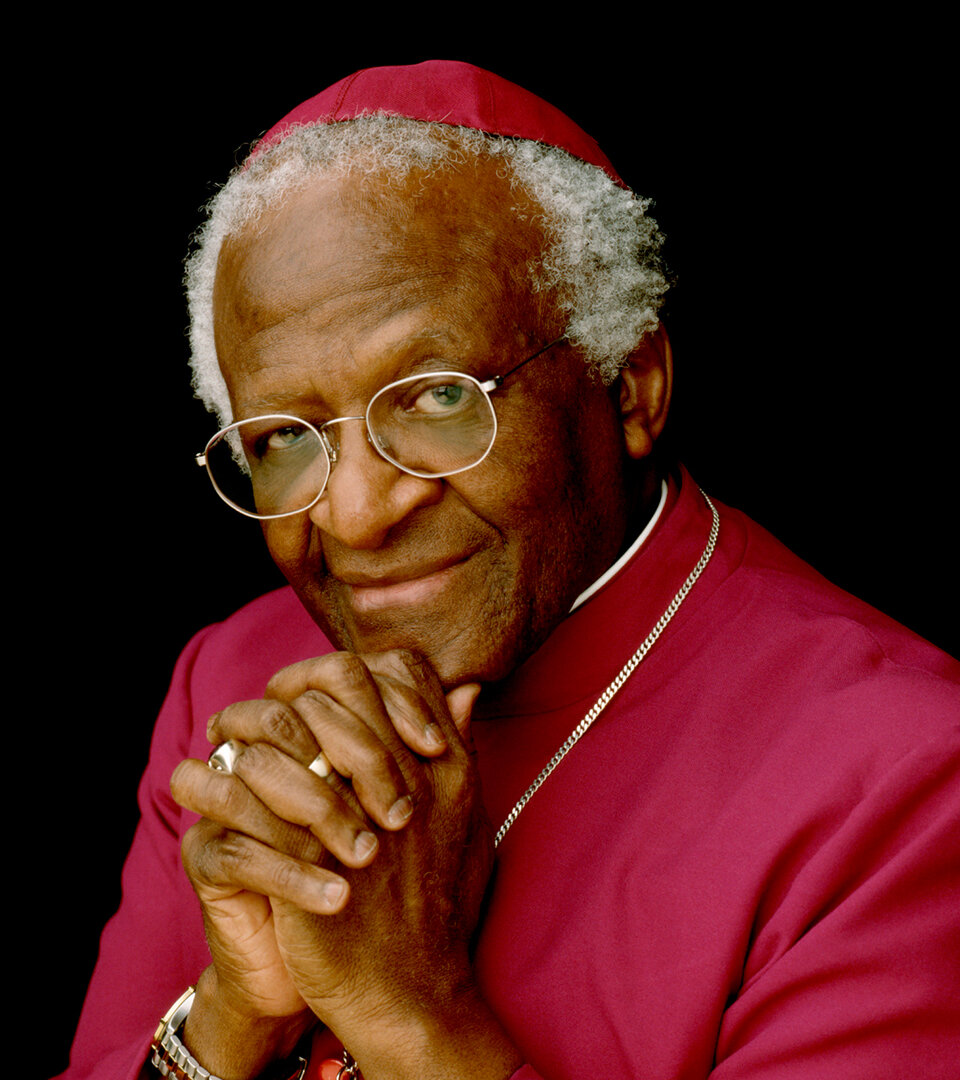
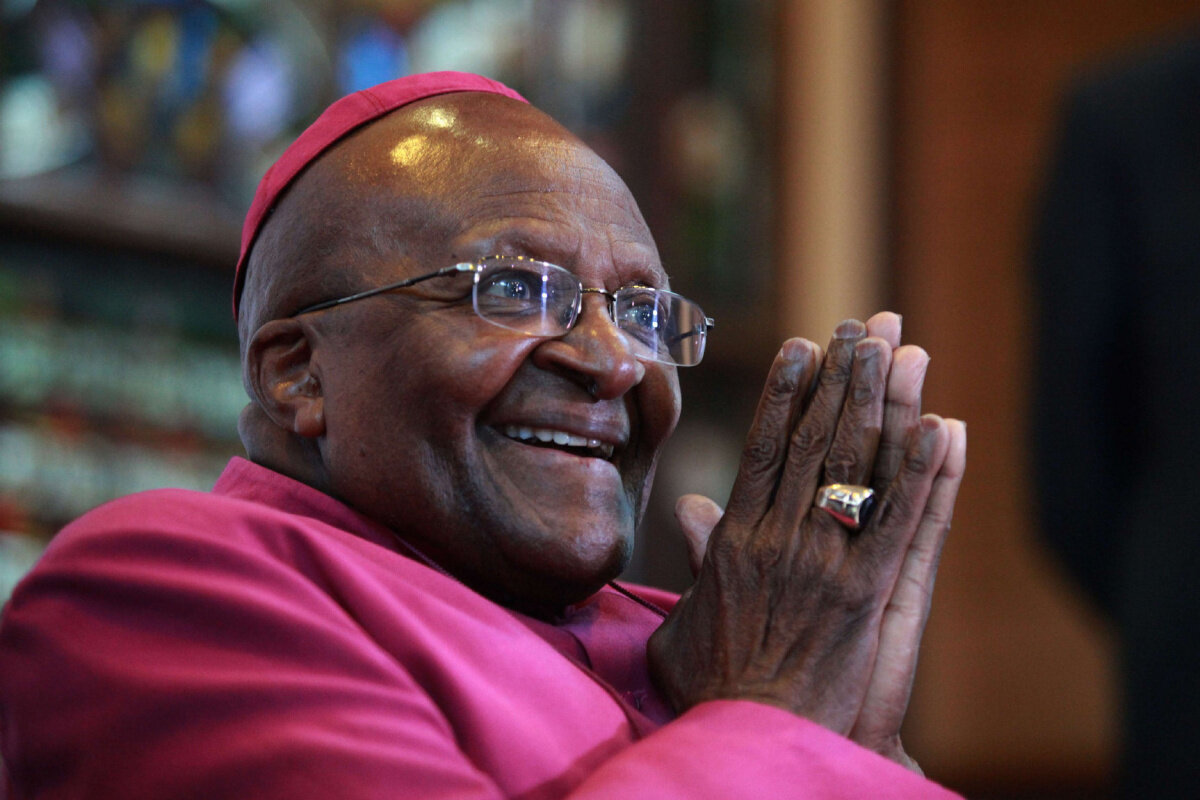
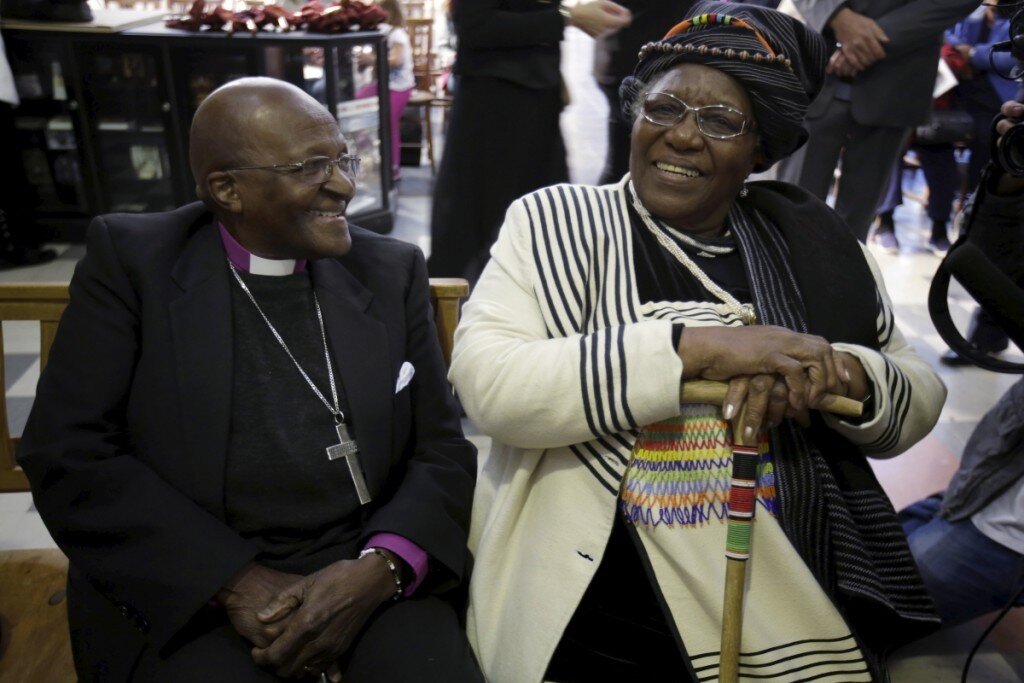
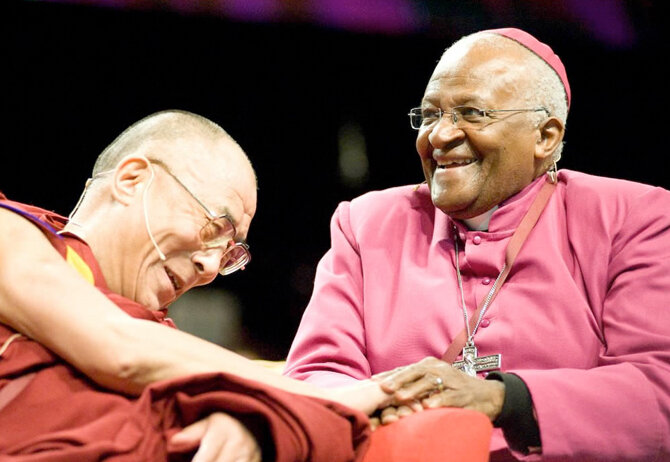
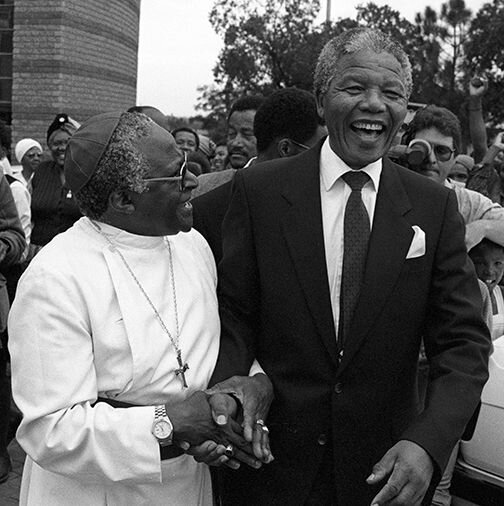
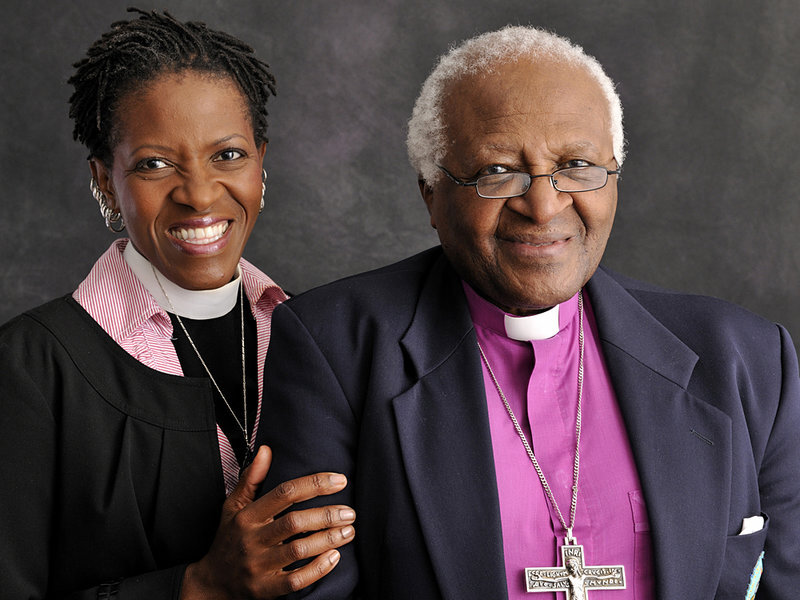

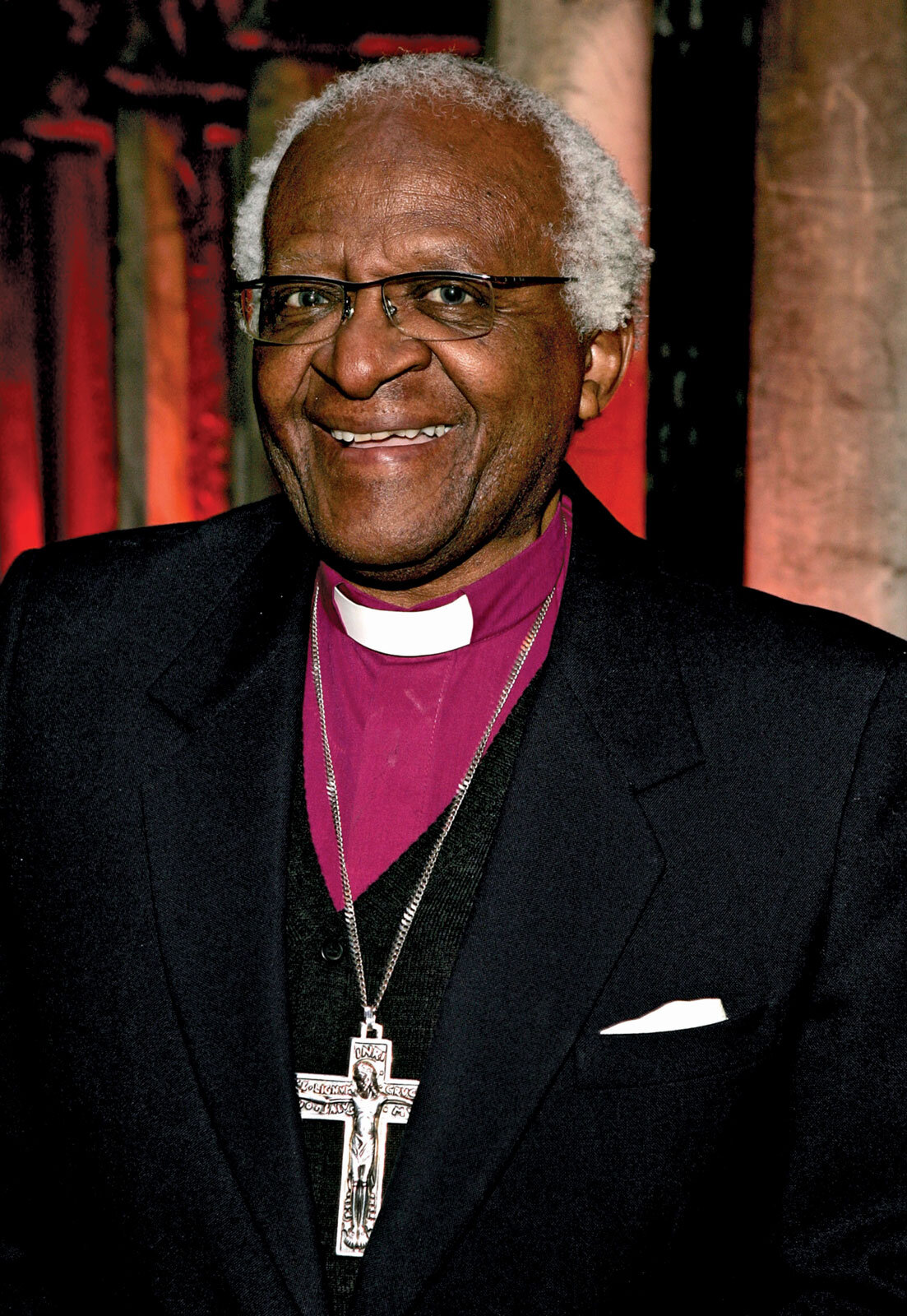
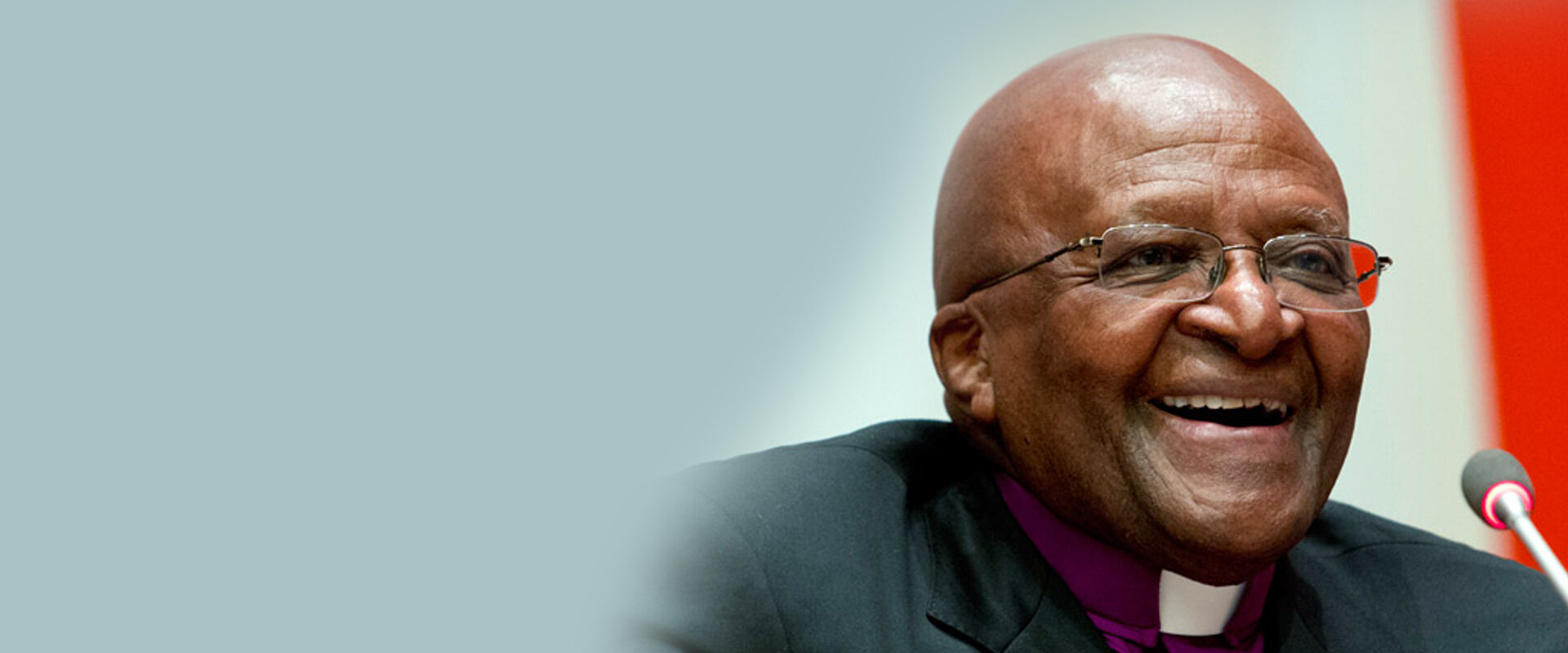
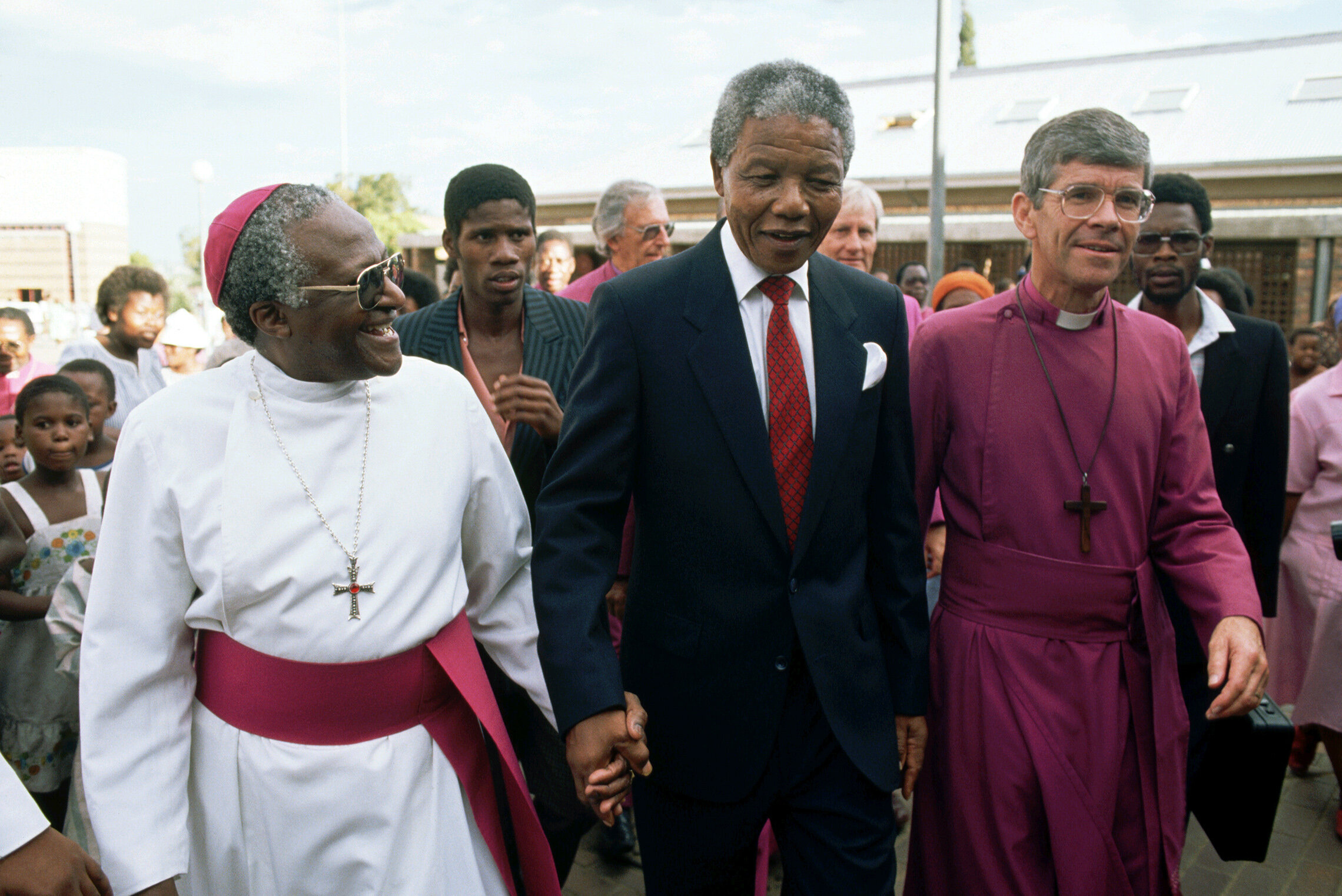
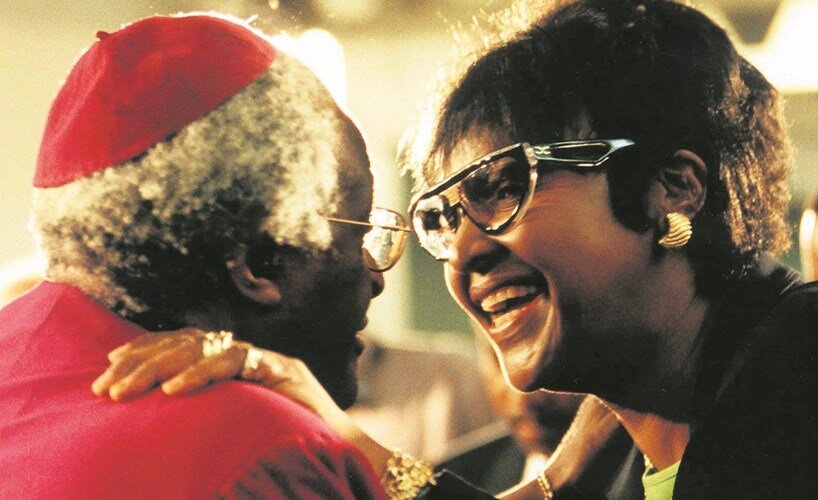
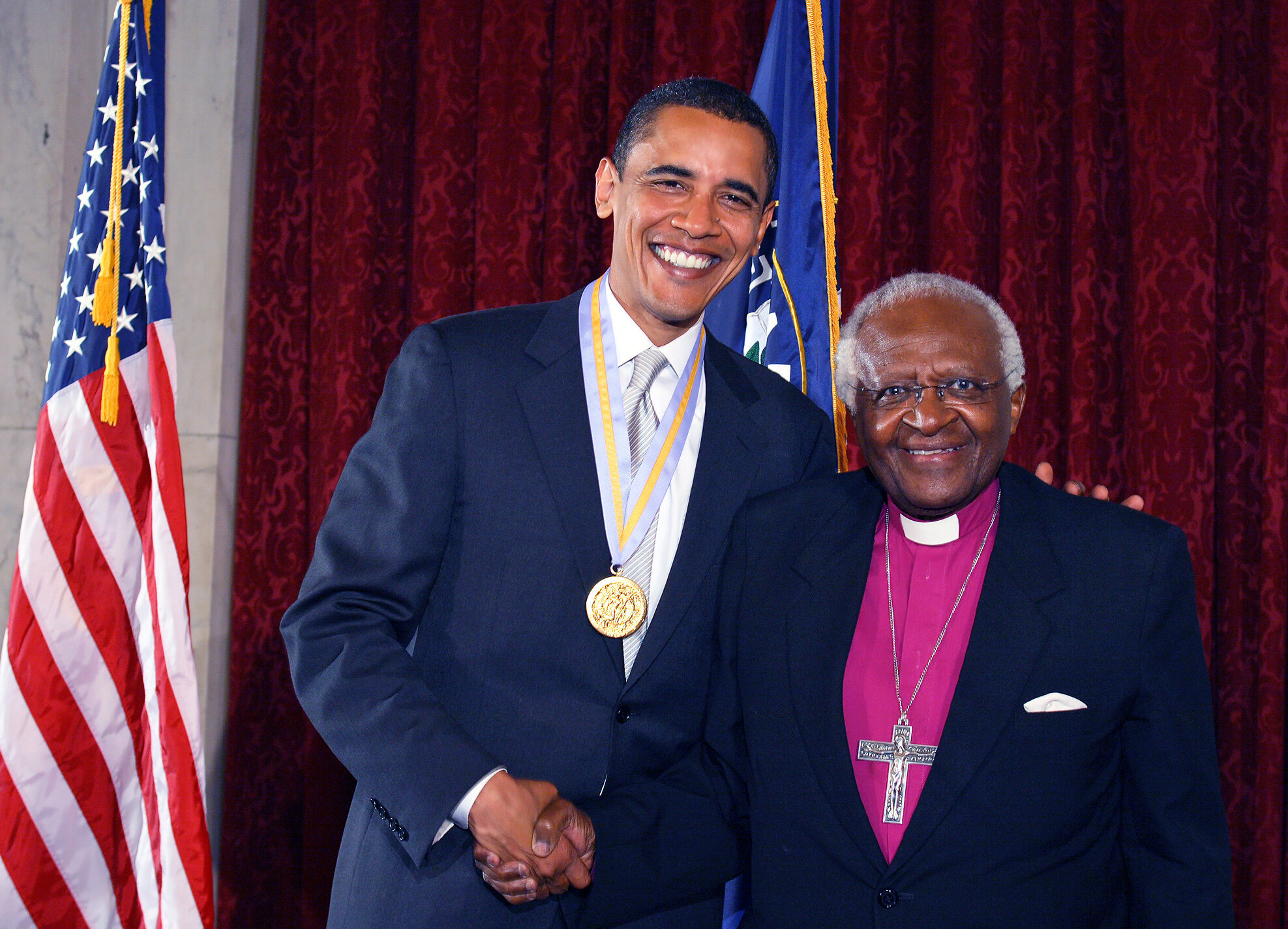

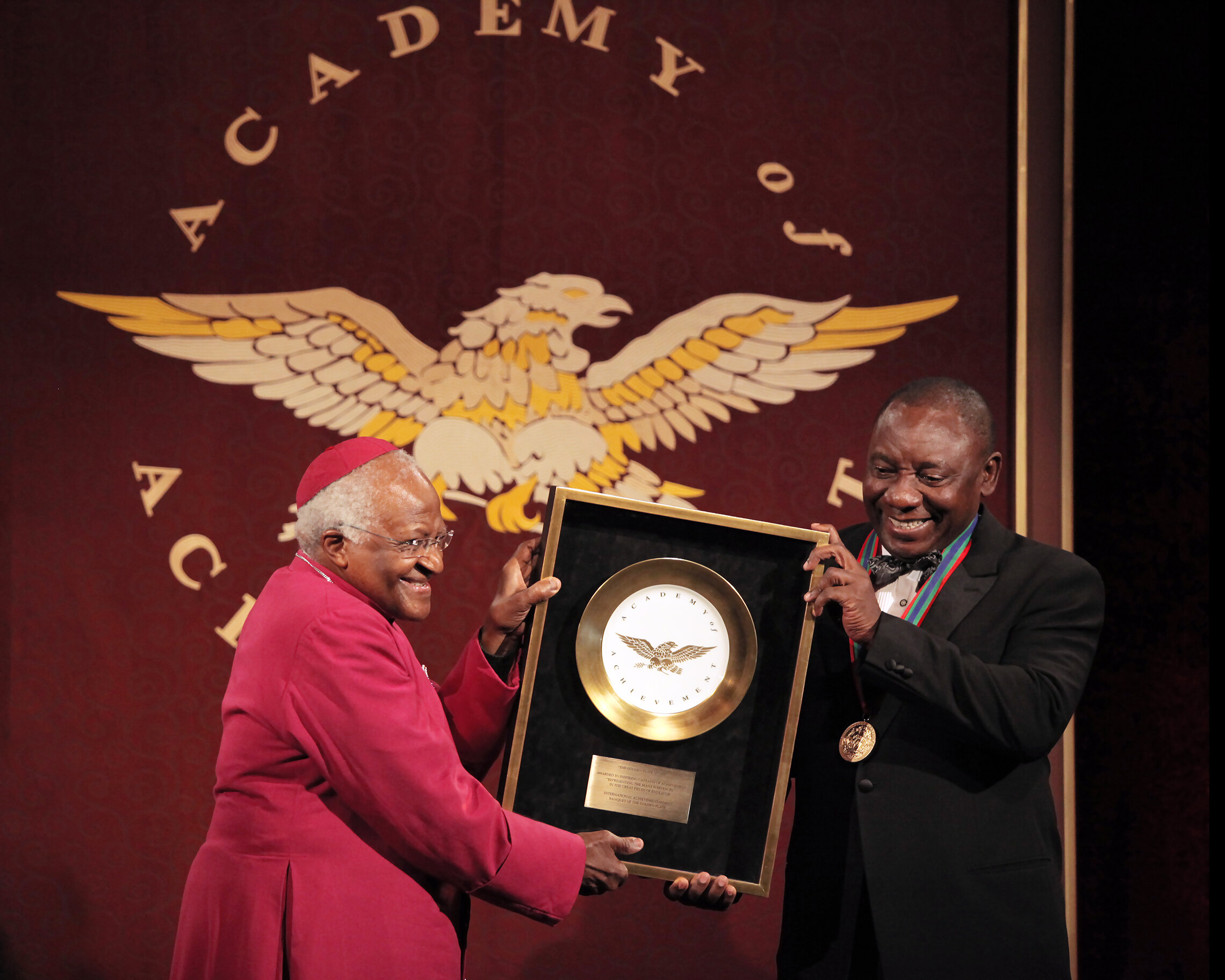
Biography of Desmond Tutu.
Identity Details:
1st Famous Name: Desmond Tutu.
Nickname: Boy.
Full True Names: Desmond Mpilo Tutu.
Surname: Tutu.
Name Origin: His Grandmother gave him this Name "Mpilo"
Date of Birth: 7 October 1931
Place of Birth: In Klerksdorp, North West Province, in South Africa.
Province of Birth: North West Province (Previously known as : Bophuthatswana)
Nationality: South African
Height: +1.3m
Weight: +50kg
Gender: Male
Home Family Details:
Father's Name: Zachariah Zelilo Tutu.
Father Lived: In Gcuwa, Eastern Cape.
Passed away {Died} in: February 1971
Career: School Teacher (Primary School).
Mothers Birth Name: Allen Dorothea Mavoertsek Matlhare.
Mother Lived: In Boksburg.
Father and Mother Married: Yes (Presumably in the 1920's).
Number of Siblings: 5 Siblings.
1st Born = Sipho Tutu (Son of the Family, Passed away, whilst still a Child in his infancy).
Older Sister = Sylvia Funeka Tutu.
2nd Born Son = Desmond Mpilo Tutu.
Born After Desmond Tutu = Gloria Lindiwe Tutu (Desmond Tutu's little Sister).
3rd Born Son = Tamsanqa Tutu (also Passed away whilst still a Child in his infancy).
Personal Family Details:
Spouse (Wife): Nomalizo Leah Shenxane.
Current Name: Nomalizo Leah Tutu
Spouse (Wife) Date of Birth: 14 October 1933
Place of Birth: Krugersdorp
Met each other in: Krugersdorp
Married Together on: 2 July 1955
Career: Studied to become a Primary School Teacher
Number of Children: 4
Children Names:
1st Born: their first child, Trevor Thamsanqa, was born in April 1956, in South Africa.
2nd Born: 1st Daughter, Theresa Thandeka, in around August 1957, about 16 months later, in South Africa.
3rd Born: 2nd Daughter, Naomi Nontombi, was born in August 1960, in South Africa.
4th Born: 3rd Daughter, Mpho Andrea, was born in 1963, in London.
Number of Grand Children: They have more than 8 Grandchildren.
Education:
At around 1936 Desmond Mpilo Tutu, attended Primary School in Tshing, at the Methodist School.
At around 1941, Desmond Tutu and his Mother moved to Johannesburg, while staying there Desmond attended School at the Methodist Primary School.
Then later he was transferred to the Swedish Boarding School (SBS) in the St Agnes Mission.
In 1943 at the age of 12 years, his passion for Christianity was so strong that he underwent confirmation at St Mary's Church, Roodepoort.
In 1945, he went to attend to school at the Johannesburg Bantu High School.
Then Mpilo moved into a hostel that was part of the Anglican complex surrounding the Church of Christ the King in Sophiatown.
In 1947, Tutu contracted tuberculosis and was hospitalized in Rietfontein for 18 months, then he returned to School in 1949.
Then in 1950, Mpilo wrote his National Exams and he ended up gaining a second-class pass.
In 1951 Desmond Mpilo Tutu, wanted to study to can become a Doctor and he was accepted to can study at the University of the Witwatersrand.
But he was not able to can study to be a Doctor, because his Parents could not afford to pay for the University of the Witwatersrand study fees.
Around 1951, Then Mpilo changed Courses and he applied to study to can become a teacher and he was awarded a government scholarship to can start studying a course at Pretoria Bantu Normal College, a teacher training institution.
At the Pretoria Bantu Normal College, Tutu Graduated as a qualified, Transvaal Bantu Teachers Diploma.
Desmond Tutu was advised and encouraged by the Political activist Robert Sobukwe, to continue studying.
Mpilo also took 5 correspondence courses provided by UNISA {The University of South Africa}, He graduated in the same class as Zimbabwean leader Robert Mugabe.
In 1953, the then South African apartheid Government introduced the Bantu Education Act, both Desmond Tutu and his wife Nomalizo Leah Tutu were against this new Education System and they both Left their Teaching Careers.
At around 1956, Tutu enrolled to study at St Peter's Theological College in Rosettenville, Johannesburg.
At this College At the college, Tutu studied the Bible, Anglican doctrine, church history, and Christian ethics and he graduated and was awarded with a degree in Licentiate of Theology.
Majority of South Africa's white-dominated Anglican Church, noticed the need for a greater number of indigenous Africans in positions of ecclesiastical authority; to assist in this, Aelfred Stubbs proposed that Desmond Tutu be trained as a theology teacher at King's College in London.
In September 1962, Desmond Tutu was allowed to Leave South Africa so that he can go to Study in England.
In 1965, Desmond Mpilo Tutu was awarded a Bachelor of Divinity, then a year later in 1966, he was awarded a Master’s Degree as Master of Theology
Both of this awards, Tutu’s Bachelor’s Degree and Master’s Degree were both awarded by the University of London.
Tutu’s Tutors suggested that studies towards an Honors Degree, he also studied Hebrew.
Tutu then Graduated in this Degree and received his degree from Queen Elizabeth, The Queen Mother of England, in a ceremony held at the Royal Albert Hall.
Desmond studied for this degree and completed his dissertation on Islam in West Africa, from October 1965 until September 1966.
In 1966, Desmond Tutu and his family left England and travelled, to East Jerusalem. They Spent 2 months in the City and Desmond Tutu studied Arabic and Greek at St George's College.



Desmond Tutu’s Life and Career
In 1920’s:
The 1920's are Suspected to be the years in which Desmond Tutu's Parents got Married.
Desmond Tutu's Father: Zachariah Zelilo Tutu, Firstly did his Primary School Teacher Training at Lovedale College.
Then After his Training, he got a Job in Boksburg, where he married Desmond Tutu's Mother, Allen Dorothea Mavoertsek Matlhare.
In the late 1920's, Desmond Tutu's Father: Zachariah, got another job in Klerksdorp, this is where Desmond Mpilo Tutu was Born.
In 1932 to 1936:
Desmond Mpilo Tutu was baptised into the Methodist Church
This is because at that time his Family were Methodists.
Desmond Tutu's family moved to Tshing. This is where Desmond Tutu's Father was employed as the principal of a Methodist school.
In 1940 to 1943:
Early 1940's, Desmond Tutu's mother moved to Witwatersrand to work as a cook at Ezenzeleni Blind Institute in Western Johannesburg.
Desmond Tutu went to live with his Aunt in Roodepoort West, in Johannesburg.
Then Desmond Tutu's Family got their own home also at the Roodepoort West township, in Johannesburg.
Desmond Tutu, then Changed Schools and Attended the Swedish Boarding School (SBS) in the St Agnes Mission School.
In 1943 as a 12 years old, Desmond had already developed an Interest in Christianity.
Due to his Christianity Interest, Desmond Tutu went for Confirmation at St Mary's Church, Roodepoort.
In 1945:
Desmond Tutu's Father enrolled him into the Johannesburg Bantu High School in 1945.
Desmond Tutu, Enjoyed Rugby as a Sport and he Joined the School's Rugby Team.
To Reduce School days, Transport Commute Expenses Desmond Tutu, moved into a hostel Johannesburg.
This Hostel was part of the Anglican complex surrounding the Church of Christ the King in Sophiatown.
Desmond Tutu then Served at that Church at the Church of Christ the King in Sophiatown.
At the Church of Christ the King in Sophiatown, Tutu was Mentored by the Church priest, Trevor Huddleston.
In 1947:
Tutu Contracted (TB) tuberculosis and was admitted at the Rietfontein Hospital for 1 year and 6 months (18 months).
While in that Hospital, Tutu was Circumcised as a transition to manhood.
The Priest, Trevor Huddleston, made regular visits to check up on The Health Progress of Desmond Tutu.
In 1949 Desmond Tutu returned to School to can continue with his Studies.
In 1950:
Desmond Tutu returned to School to can continue with his Studies.
In 1950, Desmond Tutu wrote his National Exams.
After this Exams, Desmond Tutu passed.in late 1950, gaining a second-class pass.
In 1951 Desmond Mpilo Tutu, wanted to study to can become a Doctor and he was accepted to can study at the University of the Witwatersrand.
But he was not able to can study to be a Doctor.
Because his Parents could not afford to pay for the University of the Witwatersrand study fees.
Around 1951, Then Mpilo changed Courses and he applied to study to can become a teacher.
He was awarded a government scholarship to can start studying a course at Pretoria Bantu Normal College, a teacher training institution.
While busy studying at that college, He took on a role as treasurer of the Student Representative Council.
He helped to organize the Literacy and Dramatic Society, and chaired the Cultural and Debating Society for two years.
Then one day During a debating event, Mr. Tutu met Nelson Mandela who was a Lawyer at that time, little did they know that they will be working together in the 1990’s to rebuild South Africa
At the Pretoria Bantu Normal College, Tutu Graduated as a qualified, Transvaal Bantu Teachers Diploma.
Desmond Tutu was advised and encouraged by the Political activist Robert Sobukwe, to continue studying.
Mpilo also took 5 correspondence courses provided by UNISA {The University of South Africa}.
He graduated in the same class as Zimbabwean leader Robert Mugabe.
In 1953 to 1957:
In 1953, the then South African apartheid Government introduced the Bantu Education Act, both Desmond Tutu and his wife Nomalizo Leah Tutu were against this new Education System and they both Left their Teaching Careers.
In 1954, Mr Tutu, started teaching as an English Teacher, at Madibane High School.
Then in 1955, he transferred to teach at Krugersdorp High School, in the Krugersdorp Area and at this school he was working as an English and History Teacher.
While in Krugersdorp, he then noticed Nomalizo Leah Shenxane, who was a friend of her Sister Gloria, at that time.
By that Leah Shenxane was studying to become a Primary school teacher.
They fell in love and they legally signed and got married at the Krugersdorp Native Commissioner's Court in June 1955.
Then after they held a wedding Ceremony at the Roman Catholic Church of Mary Queen of Apostles.
Even though Desmond was Anglican, he agreed for the wedding to be held at the Catholic Church because his wife Nomalizo by then was a Roman Catholic Church member.
Desmond Tutu and his Wife Nomalizo Tutu, stayed at Desmond Tutu’s home, in a Room for period of about 6 Month, then they moved out, to Rent a place of their own.
Desmond Tutu and his Wife Nomalizo Tutu, were blessed with a son, being their 1st born child and he was named Trevor Thamsanqa, was born in April 1956.
Then their 2nd born, their 1st Daughter Theresa Thandeka, was born at around August in 1957, about 16 months later after the 1st born.



In 1960 to 1965:
Their 3rd born, 2nd Daughter Naomi Nontombi, was born in August 1960.
On 21 March 1960, a crowd of about 7,000 protesters went to the Sharpeville Police Station to Protest against the anti-apartheid Pass Laws.
69 people were killed, including 8 women and 10 children, and 180 injured, including 31 women and 19 children.
Desmond Tutu and his other trainees did not mobilize in support of the anti-apartheid movement; some years later it looks like Desmond Tutu was quoted as saying that "we were in some ways a very apolitical bunch"
In December 1960, Desmond Tutu was ordained by Edward Paget as an Anglican Priest at St Mary's Cathedral.
Desmond Tutu was then appointed assistant curate in St Alban's Parish in Benoni in Johannesburg, there he earned about 72.50 Rands a month, which was about 66% the amount of Cash that his white Priest Colleagues were earning at that particular time.
While working there he was reunited with his wife and children, they were living in a converted garage.
In 1962, Desmond Tutu was transferred to an area called Thokoza, at St Philip's Church where he was placed in charge of the congregation and that is where he developed a passion for pastoral ministry.
Majority of South Africa's white-dominated Anglican Church, noticed the need for a greater number of indigenous Africans in positions of ecclesiastical authority; to assist in this, Aelfred Stubbs proposed that Desmond Tutu be trained as a theology teacher at King's College in London.
Funding was secured from the International Missionary Council's Theological Education Fund (TEF)
In September 1962, Desmond Tutu was allowed to Leave South Africa so that he can go to Study in England.
In 1965, Desmond Mpilo Tutu was awarded a Bachelor of Divinity, then a year later in 1966, he was awarded a Master’s Degree as Master of Theology
Both of this awards, Tutu’s Bachelor’s Degree and Master’s Degree were both awarded by the University of London.
Tutu’s Tutors suggested that studies towards an Honors Degree, he also studied Hebrew.
Tutu then Graduated in this Degree and received his degree from Queen Elizabeth, The Queen Mother of England, in a ceremony held at the Royal Albert Hall.
Desmond studied for this degree and completed his dissertation on Islam in West Africa, from October 1965 until September 1966.
In 1966 to 1969:
In 1966, Desmond Tutu and his family left England and travelled, to East Jerusalem. They Spent 2 months in the City and Desmond Tutu studied Arabic and Greek at St George's College.
Then Desmond Tutu and his Family returned to South Africa and they spend their Christmas holidays in Witwatersrand.
In 1967 they moved to the Eastern Cape Province, at a place called Alice, this is where Desmond Tutu was employed as a teacher to teach Doctrine, The Old Testament and Greek, where Fedsem {Federal Theological Seminary} was recently been established
Fedsem was created to accommodate and to unite different Christian institutions, as a away to can share, transfer and receive training in support of the Christian Faith.
Tutu was the 1st black African staff member at the College Institution and this College was one of the few that accommodated mixed races during the Apartheid Period.
Desmond Tutu’s wife Nomalizo Leah Tutu, was also employed in tis Institution as a Library Assistant.
Mr. and Mrs. Tutu, preferred to take their Children to be educated in Swaziland {Eswathini}, which is the neighboring Country on the Eastern Side of South Africa.
They did not want their children to be educated under the Bantu Education System.
Mr. Tutu was also appointed as the Anglican chaplain to the University of Fort Hare.
Desmond Tutu, was a none Sexist, as he invited both Male and Females students to become servers during a Christian service, ceremony.
Mr. Tutu also joined the Anglican student delegation to meetings of the Anglican Student’s Federation and the University Christian Movement.
From this Environment of hosting multiple meetings, the famous Black Consciousness Movement emerged, under the leadership of people like Steve Biko and Barney Pityana.
Desmond Tutu supported the Black Consciousness Movement, he also wished that it could include all racial groups, instead of being more like a Black Majority Movement.
In around September 1968, students at the University of Fort Hare, held a Sit in Protest against the Universities administration's policies.
Then the Apartheid Police were called to handle the Protest Situation at the University, Then the police came with Dogs and started to surround the Protesting Students.
Then Desmond Tutu walked through into the Crowd and prayed with the Protesting Students.
Desmond Tutu witnessed, at first hand the abuse of state Power and State resources, being used to suppress students Protest.
Desmond Tutu decided to leave, just when he was close to be promoted to can be the Vice Principal of Fedsem.
He accepted a job in Roma in Lesotho at the UBLS {University of Botswana, Lesotho and Swaziland}.
On this new Job he was paid double the Salary that he was receiving at Fedsem.
This new job also allowed both him and his wife to be closer to his children.
In 1970:
By January 1970 both Mr. and Mrs. Tutu, moved to the UBLS campus.
The UBLS policy was non-racial and it was also inclusive, even though most of the staff colleagues were of a white race.
While working in Lesotho, he returned to South Africa on numeral occasions to even visit this father.
In 1971 to 1972:
Desmond Tutu’s father passed away in February 1971.
When working in Lesotho, Mr. Tutu became an external examiner for both the Rhodes University and Fedsem.
He also joined the executive board of the Lesotho Ecumenical Association.
In March 1972, Desmond Tutu and his family relocated to England, in London, because Desmond Tutu was offered a job by the TEF to be their director for Africa.
Before the Tutu family could leave South Africa, they were denied permission to leave because they were suspicious that Tutu was relocating as a Political move, but Desmond Tutu suggested that if they allow him to leave it will boost the image of the country as not having Apartheid.
The Tutu family settled in Grove Park, where Tutu became honorary curate of St Augustine's Church, Desmond Tutu and his family settled in Grove Park and the headquarters TEF were in Bromley.
Tutu’s new job included assessing grants to theological training institutions and students and to do this task he had to travel across the African Continent and Tutu wrote about his journey across the Country.
Desmond reported that in Zaire, there was Poverty and Corruption across that Country.
In 1972, Mr. Tutu was impressed by Jomo Kenyatta's Kenyan government.
In 1975:
In 1975, Timothy Bavin and Desmond Tutu were both nominated to be the new Bishop of Johannesburg, but then imaged victorious and was given this position.
Then Timothy Bavin, suggested that Mr. Tutu can take the position of being the dean of St Mary's Cathedral, in Johannesburg, this was the position that was held by Mr. Bavin before he was elected as the Bishop of Johannesburg.
In March 1975, Desmond Mpilo Tutu became the 1st Black African Man to be the dean of St Mary's Cathedral, in Johannesburg, which is the 4th Highest position in South Africa's Anglican hierarchy.
After Desmond Tutu was awarded the Dean Position, his appointment made Headline news in South Africa.
But Desmond Tutu’s Wife Nomalizo Leah Tutu, was not happy and did not want Desmond Tutu to take this Position, but Desmond took the position anyway, Nomalizo was not Happy.
Desmond Tutu, relocated back to South Africa and he was officially placed on the Dean’s Position in August 1975.
But Desmond Tutu lived in Orlando West township of Soweto in the Johannesburg area, he did not live in the official Dean’s House in Houghton which was a white race residential Area.
St Mary's Cathedral, had a mixed race Congregation, with majority being White people and Desmond noticed that this Congregation was paving the possibility of a mixed race future.
Mr. Tutu also supported the Ordination of Women so that both men and women could have equal opportunities in the Cathedral’s positions of leadership.
As the Dean of St Mary's Cathedral , Desmond Tutu used this Position to put his voice against Apartheid and he met and also shared platforms with Freedom activists like Winnie Mandela, Mamphela Ramphele and Nthano Motlana.
He also supported organizations like the ANC, the Black Consciousness Movement that was promoted by Steve Biko and other Community leader and more.
In 1976 to 1977:
He Publicly supported the boycott of South Africa’s Economy and opposed B.J. Vorster stance of promoting apartheid to a point that in around May 1976, he wrote an open letter to B.J. Vorster, warning of the possibility of violence increasing within South Africa.
Desmond did not support apartheid laws like, the Pass Law, Bantu education Act and the Terrorism act of 1967.
Less than 2 Months after writing the Open later to B.J. Vorster, On 16 June 1976 there was a national Students Strike against the Apartheid government for forcing to use Afrikaans as the Medium of Instruction.
Then on June 16, during that national uprising many Students were shot and they died, in Johannesburg, at the Soweto Uprising and this was captured on TV, Radio and on both local and international newspapers.
Tutu was not happy that the Majority of South Africa’s white race were largely not Condemning the brutality of the Police and the Government for shooting and killing Black Students.
Desmond Tutu raised this issue in his Sunday sermon, stating that the white silence was "deafening" and asking if they would have shown the same nonchalance had the school children killed by police and pro-government paramilitaries been white.
Months earlier in March 1976, Desmond Tutu was nominated and elected to be the Bishop of Lesotho.
Even though Tutu, did not want the Bishop Position, he was nominated anyway.
By July 1976, Bill Burnett consecrated Tutu as a bishop of Lesotho, at St Mary's Cathedral.
Then in August 1976, Tutu was given the throne of being the Bishop of Lesotho.
Hundreds to thousands of people attended this Bishop ceremony, including the likes of King Moshoeshoe II and Prime Minister Leabua Jonathan, held in Lesotho at the Cathedral of St Mary and St James.
In September 1977, Desmond Tutu was invited to speak, at the Funeral of the Black Consciousness Leader Steve Biko, which was held in the Eastern Cape.
During the funeral Desmond Tutu stated that “Black Consciousness was a movement by which God, through Steve, sought to awaken in the black person a sense of his intrinsic value and worth as a child of God”.

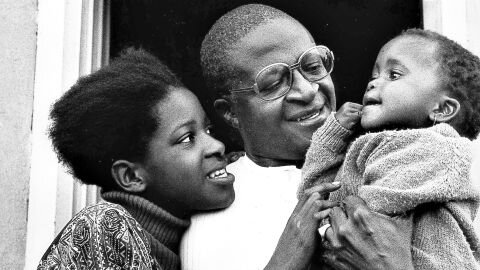
In 1978 to 1980:
In March 1978, Desmond Tutu became the general secretary of the SACC {South African Council of Churches} this made Tutu to be, the 1st Black Person to lead the SACC.
Tutu was nominated to be the general secretary of the SACC, after 1stly John Rees stepped down, from that position and then his Successor John Thorne also stepped down 3 Months later after replacing John Rees on that same position.
Anglicans in Lesotho were not happy about Tutu accepting that SACC job.
Desmond Tutu and his wife relocated back to Johannesburg and his wife also got employment as the assistant director of the Institute of Race Relations.
They lived and relocated back to their previous Orlando West home, in a way that could be said it was a miracle.
Tutu ran the SACC in a new kind of way by appointing Senior staff with Tasks that encouraged them and he then kept in touch with them through meetings and memorandums.
Mr. Tutu was aiming to make the SACC to be one of the most visible human rights public support organization’s in South Africa, but the apartheid government did not like this at stance all.
From around 1978, Tutu started getting international recognition for his Human rights efforts.
In 1978 both the University of Kent and General Theological Seminary gave Tutu honorary doctorates, then Kings College London at University of London elected him a fellow.
Then in 1979 Harvard University also gave him an honorary doctorate.
In October 1979 Tutu told journalists from Denmark that he supports an international economic boycott of South Africa. The Apartheid Government became aware of those News report from Denmark and Desmond Tutu, was then called by 2 Apartheid Government Ministers to be reprimanded.
In March 1980, the Apartheid Government confiscated Tutu's passport, then afterwards the International Senior Anglican Leadership especially in the USA, were disappointed by Apartheid government passport confiscation
During the same year Desmond Tutu, also signed a petition calling for the release of our South African Freedom Fighter Nelson Mandela.
In 1983 to 1984:
In August 1983, the UDF { United Democratic Front } was formed by South Africans who were united to can fight the struggle against Apartheid, by this time Desmond Tutu was a popular figure in the Struggle and he was on the same level as Nelson Mandela in popularity.
Desmond Tutu was selected as one of the leaders of the newly formed UDF.
A number of institutions that supported apartheid like the SABC (South African Broadcasting Corporation) which had a TV Station and a number of Radio stations together with the Citizen Newspaper were actively putting negative publicity against Desmond Tutu in the aim of discrediting him.
Desmond Tutu also received Death Threats and Hate mail from those who strongly supported Apartheid.
Regardless of the negative publicity, Desmond Tutu also had other prominent white liberals like Helen Suzman who were supporting his effort against apartheid.
After publishing his 1982 sermons and speeches, in 1984 Tutu published another collected volume: “Hope and Suffering”.
In 1984, Desmond Tutu took a trip to the USA, on a 3 month sabbatical leave at the General Theological Seminary of the Episcopal Church in New York.
While being in the USA, Mr. Tutu was invited to the White house and he met with the then USA President Ronald Reagan.
Desmond Tutu asked the USA President Ronald Reagan to take a strong stance against the Apartheid government, but the USA President did not favor Mr. Tutu’s advice.
Afterwards, Desmond Tutu described Ronald Reagan as "a racist pure and simple"
In 1984, the Nobel Peace Prize selection committee met to decide who qualifies to win the 1984 Nobel Prize award.
During their meetings they agreed that it should be awarded to Mr. Desmond Tutu, a South African so that the international community can recognise the problems in that country.
Desmond Tutu was considered to be a less controversial choice than 2 other South African nominees Mangosuthu Buthelezi and Nelson Mandela, also it was noted that Mr. Tutu had been nominated for this award multiple times from 1981, 1982, 1983 and also in 1984 proving that he was consistently making taking efforts in fighting against the Apartheid System.
After Desmond Tutu was awarded this Nobel Peace Prize, it made him to be the 2nd South African to win such an international important Award, the 1st ever South African to can win this award was Chief Albert Luthuli in 1960.
Desmond Tutu was awarded $192,000 prize money and he shared this prize money with the SACC Staff, his Family and he also took some amount to support a scholarship Fund for South Africans in exile.
In 1984 Mr. Timothy Bavin, retired as the Bishop of Johannesburg.
There were 5 Candidates considered as his replacement and Desmond Tutu was part of those 5 candidates.
An elective assembly met at St Barnabas' Collegein October 1984 and Mr. Desmond Tutu was elected as the Winner, as the Bishop of Johannesburg.
In 1980 to 1982:
In 1980, the SACC committed itself to supporting civil disobedience against South Africa's racial laws.
This commitment took place in May 1980, after Thorne was arrested, then both Joe Wing and Desmond Tutu, led a protest march, in which both of them were arrested by riot police, fined and they also spent the night in prison, on top of that Desmond Tutu’s Passport was confiscated by the state officials.
A few months later, in August of 1980, after the arrest of the trio “Thorne, Tutu and Wing” a meeting was organized between Church leaders and the South African Government.
This meeting included the then Prime Minister of South Africa P.W. Botha, 7 of his Government Ministers and 20 Church leaders, which included Desmond Tutu.
During this meeting the Church leaders asked the South African government to stop and to dismantle the apartheid system and its laws, but unfortunately the government disagreed.
In 1981 Desmond Tutu became the rector of St Augustine's Church in Soweto's Orlando West.
In January 1981, the government authorities gave Desmond Tutu his passport back to him.
2 Months later in March 1980, Desmond Tutu went on a 5 week tour visit to about 10 different Countries having meetings with International Politicians, UN authorities, and visiting countries in North America and also in Europe.
While in Europe he met with Runcie in the UK and Tutu also gave a sermon in Westminster Abbey and then in Italy Tutu met with the Pope: John Paul the 2nd in Rome.
After Desmond Tutu returned back to South Africa, the Prime Minister P.W. Botha ordered that Desmond Tutu’s passport should be confiscated again.
After his Passport was confiscated Desmond Tutu could not personally travel internationally to collect a number of Honorary Degrees which were awarded to him.
Ultimately Tutu’s passport was returned to him about 17 Months later.
Then on 17 September 1982, Desmond Tutu travelled to USA and in New Orleans at the Episcopal Church he addressed the Triennial Convention.
Then after traveling to New Orleans, Mr. Tutu travelled to visit his daughter Naomi and her American Husband in Kentucky.
In 1982, Tutu began collecting some of his sermons and speeches, publishing them in a collection titled “Crying in the Wilderness: The Struggle for Justice in South Africa”.
In 1985:
In February 1985, at a ceremony in St Mary's Cathedral, Mr. Desmond Tutu was enthroned as the 6th Bishop of Johannesburg at a ceremony in St Mary's Cathedral.
Then Mr. Desmond Tutu resigned as one of the leaders of the UDF.
Mr. Desmond Tutu was the 1st ever Black South African to be elected as the Bishop of Johannesburg.
During his 1st Sermon after taking over the role as the 6th Bishop of Johannesburg, Mr Tutu announced that he would call on the international community to introduce Strong economic sanctions against South Africa if the Apartheid System is not stopped within 18 to 24 Months.
There was an increase in the death toll of young angry Black South Africans who were busy being killed when they were busy clashing with the Apartheid Security Services.
Mr. Tutu was invited to be one of the main Speakers during many of those funerals and thousands of Mourners attended such Funerals.
Desmond Tutu spoke out against the torture and killing of suspected collaborators or informants, some of those young freedom fighters felt that Tutu was negatively affecting their progress on their struggle against apartheid by making such remarks.
Around this period, the ANC called on black South Africans to make the country "ungovernable".
On the other hand foreign companies increasingly disinvested in the South African economy.
Then the South African currency the Rand dropped to its record low value.
In April 1985, in Johannesburg Mr. Tutu led a Protest March to protest against the arrest of Reverend Geoff Moselane.
Then in July 1985, Prime Minister of South Africa P.W. Botha, declared a State of Emergency.
Botha also suspended civil liberties and he gave the security services additional powers.
Tutu was unhappy about when P.W. Botha increased the power of the security services, Tutu then offered to can be the Mediator between the Apartheid government and the Freedom struggle organizations.
But this friendly offer from Tutu was rejected in an abrupt or ungracious manner by the Apartheid government.
In October 1985, he backed the National Initiative for Reconciliation's proposal for people to refrain from work and engage in a day of prayer, fasting and mourning.
Then in the same month of October 1985, Mr. Tutu addressed the political committee of the United Nations General Assembly urging that the international community to put Strong sanctions on South Africa, if the apartheid system was not discontinued within 6 months.






In 1986 to 1989:
In 1986, Philip Russell announced his retirement as the Archbishop of Cape Town.
During that time, Desmond Tutu was in Atlanta, Georgia in the USA, receiving the Martin Luther King, Jr. Nonviolent Peace Prize.
Then Desmond Tutu was elected to be the 1st Black Person to be the Archbishop of Cape Town, Some white Anglican members left the church in protest of his election.
On 7 September in 1986, Tutu’s inauguration was held at the Cathedral of St George the Martyr, whereby more than a 1000 People attended the ceremony.
After this ceremony, Desmond Tutu invited both invited Albertina Sisulu and Allan Boesak to give political speeches at the open-air Eucharist for about 10,000 people at the Cape Show grounds in Goodwood, a few kilometers outside the Cape Town CBD.
After being inaugurated as the Bishop of Cape Town, Desmond Tutu did not ask the Apartheid government for permission to can stay at the post's official residence at Bishopscourt, which was then considered as a White’s only area (No Black South Africans were allowed to stay in that area).
As the Bishop of Cape Town, Tutu secured approval for the ordination of female priests in the Anglican church.
Allan Boesak, Stephen Naidoo together with Desmond Tutu became church leaders who were involved in mediating conflicts between the Apartheid security forces and black protesters.
In February 1988, the Apartheid government banned the UDF and also banned 17 black or multi-racial organisations as well.
On 3 September 1984, the Deputy Mayor of Sharpeville, Mr. Kuzwayo Jacob Dlamini was killed, during a protest march in Sharpeville, after a number of those Protesters threw stones at his house.
He responded by firing a Gun at them, then the Protesters retaliated, the situation escalated into a riot that ultimately ended up, in his Death.
Then 6 of the Protesters were arrested { Namely: Theresa Ramashamola, Francis Don Mokhesi, Duma Khumalo, Reid Mokoena, Mojalefa Sefatsa and Oupa Diniso}
On 12 December 1985, All 6 Protesters were found guilty of Murder they were sentenced to Death by Hanging. Their murder trial was famously known as the Sharpeville Six.
Desmond Tutu also escalated the Sharpeville Six death sentencing, to the international community government leaders to put Pressure on P.W. Botha, to reduce the Sentence.
P.W. Botha and Desmond Tutu, had a meeting to discuss this matter and even though both of them had opposing views on the matter, after this meeting the Sharpeville Six death sentence was then reduced to about 18 to 25 Years imprisonment by P.W. Botha.
Around May 1988, the Apartheid government’s State Security Sector, started to target Desmond Tutu and His Family.
Desmond Tutu’s wife Leah Tutu, was arrested and then locked in a Police Holding Cell by the Traffic Police after she was late to renew her Vehicle License
Apartheid State Security even organized & paid unemployed black people to Protest against Desmond Tutu, one of such protests took place when Desmond Tutu was scheduled to arrive at the Airport.
On 14 August 1989, Pieter. Willem.Botha ( P.W. Botha ) resigned as the President of South African Apartheid Government.
He was replaced by Frederik. Willem. De Kerk ( FW De Kerk ).
In 1990 to 1993:
In 02 February 1990, FW De Kerk as the President of the South African apartheid Government, at the opening of Parliament in his Speech, he announced the Unbanning of all Anti-apartheid Political Parties and also Anti-apartheid activists and also the Release of Nelson Mandela and all other political prisoners.
This unbanning included the unbanning of the United Democratic Front (UDF), African National Congress (ANC), South African Communist Party (SACP), Pan Africanist Congress (PAC).
On 11 February 1990 on a Sunday, Nelson Mandela was released from Victor Verster Prison.
It was reported, that the ANC asked Desmond Tutu if both Nelson Mandela and his wife Winnie could stay at Desmond Tutu’s Bishopscourt house, on the first night of his freedom after being released from Prison and Desmond Tutu agreed.
On that very same Sunday of his release, Nelson Mandela met with Desmond Tutu in about 35 years at the Cape Town City Hall.
Then at Cape Town City Hall balcony Nelson Mandela gave his 1st Speech addressing the Nation and the crowd as a free man.
Since around March 1990, violence broke out between the supporters of the Inkata Freedom Party and the ANC Party.
After this violence, Desmond Tutu went to attend to peace talks that took place in Ulundi, in the Kwa Zulu Natal Province, between the SACC delegation, Nelson Mandela, FW De Kerk and the Inkata Freedom Party Leader Mangosuthu Buthelezi.
From then onwards the violence spread from Kwa Zulu Natal province, to the Gauteng province and the violence resulted in the massacre in Sebokeng and later another massacre took place in Boipatong.
The Sebokeng Massacre, took place while it was dark at night on 12 January 1991, more than 30 People and ANC Supports were killed.
They were killed while attending an all-night vigil held in a tent, during the Funeral of Mr. Chris Nangalembe.
Who was an ANC member, who was kidnapped and brutally killed on 5 January 1991, his body was found at a rubbish dump near by Boipatong.
The Boipatong massacre took place at night on 17 June 1992 in Boipatong, at the Joe Slovo Informal settlement, whereby 45 people were killed.
It was alleged that about 300 men came armed from Kwa Madala Hostel and that the supporters were Inkatha Freedom Party (IFP) members.
During the time of the massacre, The South African government and several other political parties and groups were negotiating in the Convention for a Democratic South Africa (CODESA) talks.
Sometime later it was reported that sectors of the apartheid intelligence agency were supplying Inkatha with weapons to weaken the ANC's negotiating position.
On 10 April 1993, Chris Hani was assassinated at his home, while he was stepping out of his car, in Dawn Park which by then was a racially mixed suburb in Boksburg.
Chris Hani was assassinated by Januzs Walus, a white male, who was born in Poland.
After Chris Hani was assassinated, Nelson Mandela went live on National TV, urging Black South African’s not to take revenge by starting a Civil War against the White South Africans and the Apartheid Government, he Encouraged them to take Revenge by going all out in big numbers to go to Vote in the 1994 Elections, so that they can be Truly Free.
Desmond Tutu, was a preacher at Chris Hani’s Funeral.
Truth and Reconciliation lead by Desmond Tutu, from 1996 to 2009
In 1994 to 1996:
In 1994, for the sake of peace, so that the brutal Political killings could end and also for the eradication of the Apartheid Government, Desmond Tutu, took part in the 1994 multi-racial Election Rallies.
Tutu urged People to go to vote so that a Democratic South Africa can be born, after the Black Majority had won the 1994 Elections.
Desmond Tutu, was seen addressing crowds during the 1994 Election Rallies, he was even on Posters and also on Newspapers.
The 1994 Multi-racial Elections took place from 26 April 1994 to 29 April 1994.
The ANC won the 1994 multi-racial Elections with 62.65%, in 2nd Place was the National Party with 20.39% and 3rd Place was the Inkatha Freedom Party with 10.54%.
Nelson Mandela was inaugurated as the new President of the newly to be formed Democratic South Africa.
Desmond Tutu was invited to the inauguration Ceremony.
The inauguration Ceremony was attended by various different Religious groups Top leaders and Priests including Jewish, Muslim, Hindu and Christians.
In October 1994, Desmond Tutu announced that he will retire as archbishop in 1996.
Then in June 1996 at St George's Cathedral a farewell ceremony was held there and well known leaders like FW De Kerk, Nelson Mandela and other Senior Leaders were also present there, by that time Desmond Tutu also had a new Title and he was called: Archbishop Emeritus Desmond Mpilo Tutu.
Then Nelson Mandela as the then President of South Africa, awarded Desmond Tutu with the Order of Meritorious Service, which is South Africa's Highest Honour.
In 1994, for the sake of peace, so that the brutal Political killings could end and also for the eradication of the Apartheid Government, Desmond Tutu, took part in the 1994 multi-racial Election Rallies.
Tutu urged People to go to vote so that a Democratic South Africa can be born, after the Black Majority had won the 1994 Elections.
Desmond Tutu, was seen addressing crowds during the 1994 Election Rallies, he was even on Posters and also on Newspapers.
In 02 February 1990, FW De Kerk as the President of the South African apartheid Government, at the opening of Parliament in his Speech.
He announced the Unbanning of all Anti-apartheid Political Parties and also Anti-apartheid activists and also the Release of Nelson Mandela and all other political prisoners.
This unbanning included the unbanning of the United Democratic Front (UDF), African National Congress (ANC), South African Communist Party (SACP), Pan Africanist Congress (PAC).
On 11 February 1990 on a Sunday, Nelson Mandela was released from the Victor Verster Prison.
In 1997 to 1999: Truth and Reconciliation
The Truth and Reconciliation (TRC) took place between the year 1998 and 2000, and during that period he wrote a book about the TRC, it was called: “No Future Without Forgiveness.”
Desmond Tutu is the one who initially popularised the term "The Rainbow Nation" as a metaphor for post-apartheid South Africa after 1994 under ANC rule.
Tutu first used this metaphor in 1989, while Nelson Mandela was still in prison and ANC was still Banned, Tutu used it to describe a multi-racial protesting crowd as the "Rainbow people of God".
A key question was how the new SA Government would respond to the various human rights abuses that were committed for years by both the apartheid State and also by anti-apartheid activists.
The National Party had wanted a comprehensive amnesty package whereas the ANC wanted trials of former state figures including Politicians and State personnel.
Alex Boraine helped Mandela's government to draw up legislation for the establishment of a Truth and Reconciliation Commission (TRC), which was passed by parliament in July 1995, in terms of the Promotion of National Unity and Reconciliation Act, No. 34 of 1995.
Tutu proposed that the TRC adopt a threefold approach.
The 1st (first) being confession, with those responsible for human rights abuses fully disclosing their activities.
The 2nd (second) being forgiveness in the form of a legal amnesty from prosecution.
The 3rd (third) being restitution, with the perpetrators making amends to their victims.
The work of the TRC was accomplished through 3 (three) committees.
The 1st (first) being the Human Rights Violations Committee investigated human rights abuses that occurred between 1960 and 1994.
The 2nd (second) being the Reparation and Rehabilitation Committee was charged with restoring victims' dignity and formulating proposals to assist with rehabilitation.
The Amnesty Committee considered applications from individuals who applied for amnesty in accordance with the provisions of the Act.
While listening to the testimony of victims, Tutu was sometimes overwhelmed by emotion and cried during the hearings.
In January 1997, Desmond Tutu was diagnosed with prostate cancer and he was also re-diagnosed with prostate cancer again in both 1999 and in 2006.
Desmond Tutu presented the five-volume TRC report to Nelson Mandela in a public ceremony in Pretoria in October 1998.









In 2000 to 2015: Social & Worldwide issues
Desmond Tutu regarded discrimination against homosexuals as being the equivalent to discrimination against black people and women.
In 2003, Desmond Tutu was the scholar in residence at the University of North Florida.
It was there, in February, that he broke his normal rule of not joining protests outside South Africa by taking part in a New York demonstration against plans for the U.S. to launch the Iraq War.
He telephoned Condoleezza Rice urging the U.S. government not to go to war without a resolution from the United Nations Security Council.
Desmond Tutu questioned why Iraq was being singled out for allegedly possessing weapons of mass destruction when Europe, India, and Pakistan also had many such devices.
In 2012, he called for U.S. President George W. Bush and British Prime Minister Tony Blair to be tried by the International Criminal Court for initiating the Iraq War.
Before the 31st G8 summit at Gleneagles, in Scotland, in 2005, Tutu called on world leaders to promote free trade with poorer countries and to end expensive taxes on anti-AIDS drugs.
In July 2007, Tutu was declared Chair of The Elders, a group of world leaders to contribute their wisdom, kindness, leadership and integrity to tackle some of the world's toughest problems.
Desmond Tutu served in this capacity until May 2013.
In October 2010, Desmond Tutu announced his retirement from public life, so that he could spend more time "at home with my family reading and writing and praying and thinking".
In May 2013, Desmond Tutu declared that he would No longer vote for the ANC, stating that while the party was "very good at leading us in the struggle to be free from oppression"
It had done a poor job in countering inequality, violence and corruption in South Africa.
On 14 July, Tutu was hospitalised by an infection that was unrelated to his battle against prostate cancer.
Then on 28 July 2015, Tutu was readmitted to Hospital, for a reoccurring Infection.
Tutu’s daughter, the Rev Mpho Tutu, said the hospitalisation was unrelated to his cancer treatment.
His oncologist confirmed that his PSA (Prostrate-Specific Antigen) level is pleasingly low,” the statement said.
In December 2015, Tutu's daughter Mpho Tutu married a woman, Marceline van Furth in the Netherlands.
In 2016 to 2021:
Desmond Tutu attended the wedding and gave the proceedings a blessing, in spite of ongoing Anglican opposition to same-sex marriage.
Desmond Tutu can speak Zulu, Sotho, Tswana, Xhosa and including English.
Tutu has had a lifelong love of literature and reading and is a fan of cricket.
Desmond Tutu also reads the Bible every day.
Tutu says he reads the Bible every day and recommends that people read it as a collection of books, not a single constitutional document:
"You have to understand is that the Bible is really a library of books and it has different categories of material," he said. "There are certain parts which you have to say no to.
The Bible accepted slavery. St Paul said women should not speak in church at all and there are people who have used that to say women should not be ordained. There are many things that you shouldn't accept."
In 2016, he had minor surgery for a persistent infection linked to his prostate cancer treatment.
Then in 2018, Tutu was hospitalised in September and discharged after two weeks.
In 2019, Tutu was admitted to Hospital from 4 to 9 December 2019, for a period of about 9 Days, for a "stubborn infection" also described as a recurring infection.
After the 2019 Rugby World Cup Final Match, The South African Rugby National Team, The Springbok’s victory win over England has restored a “self-doubting nation’s belief”
Archbishop Desmond Tutu said after the Rugby World Cup final thriller in Japan in 2019.
In December 2020, at 89 years old Tutu has received the Human Rights Global Treasure Award by US-based NGO Article3.org for his courageous opposition to apartheid.
The ceremony was live-streamed on 10 December, Part being the Global Covid-19 Pandemic, Human Rights Day, from San Francisco, while Tutu and his wife, Leah, live-streamed it from their Cape Town home.
Archbishop Emeritus Desmond Tutu and The Desmond & Leah Tutu Legacy Foundation support Covid-19 vaccination.
Governments are seeking to break the chain of Covid-19 transmission presently wreaking havoc worldwide through vaccination rollout strategies and plans.
Vaccinations have ignited hope for lives and livelihoods” the Desmond & Leah Tutu Legacy Foundation said on Monday, 18 January 2021.
There’s nothing to fear: Vaccination uses your body’s natural defenses to build resistance to infections.
It makes your immune system stronger, and because vaccines contain only killed or weakened forms of disease-causing viruses or bacteria, they do not cause the disease or put you at risk of its complications.
Desmond Tutu also explained that when he was a teenager in 1945, he contracted TB (tuberculosis).
He said that TB had robbed him of two years of his life as he underwent treatment in a TB hospital.
He said that he was lucky to have recovered from TB.


